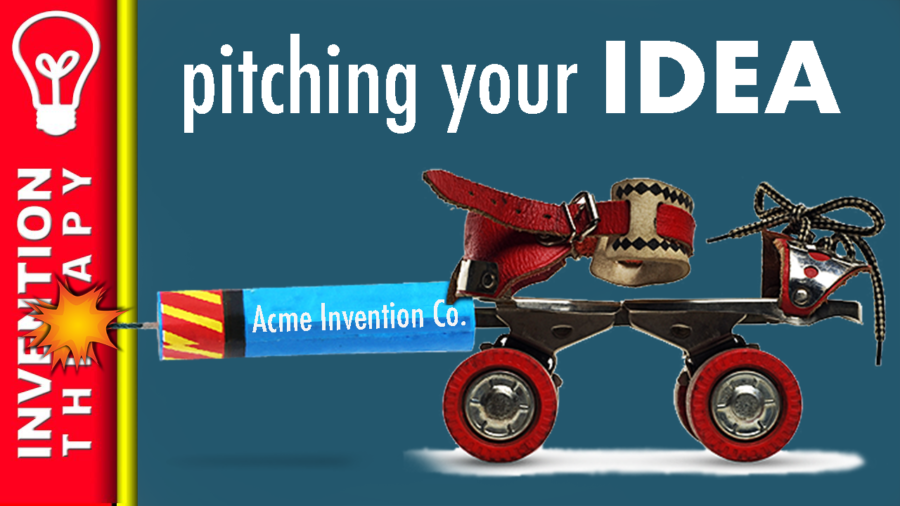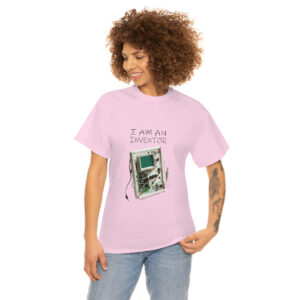I have talked about this question of how to pitch an idea without it being stolen many times. This is one of those cart before the horse type of questions because if you don’t discuss your idea, how will you ever get it off the ground?
The easiest way to pitch an idea without it being stolen is for you to get a non-disclosure agreement signed between all the people who you are pitching your idea to. A non-disclosure or confidentiality agreement is a standard contract frequently used by business professionals.
A non-disclosure agreement (NDA) can be found on the internet and modified to suit your needs. Although a lawyer is recommended for preparing the document, you can do it on your own to save money.
Here is a simple example agreement that I have used many times over the years. Do some research because you can find many more detailed contracts related to inventions by doing a Google search.
SAMPLE NON-DISCLOSURE PITCH AGREEMENT
This Agreement is made by and between , a business having its principal place of business at (“Company”) and , a corporation whose principal mailing address is (“Recipient”).
Definition of Confidentiality. As used in this Agreement, “Confidential Information” refers to any information which has commercial value and is either (i) technical information, including patent, copyright, trade secret, and other proprietary information, techniques, sketches, drawings, models, inventions, know-how, processes, apparatus, equipment, algorithms, software programs, software source documents, and formulae related to the current, future and proposed products and services of Company, or (ii) non-technical information relating to Company’s products, including without limitation pricing, margins, merchandising plans and strategies, finances, financial and accounting data and information, suppliers, customers, customer lists, purchasing data, sales and marketing plans, future business plans and any other information which is proprietary and confidential to Company.
Nondisclosure and Nonuse Obligations. Recipient will maintain in confidence and will not disclose, disseminate or use any Confidential Information belonging to Company, whether or not in written form. Recipient agrees that Recipient shall treat all Confidential Information of Company with at least the same degree of care as Recipient accords its own confidential information. Recipient further represents that Recipient exercises at least reasonable care to protect its own confidential information. If Recipient is not an individual, Recipient agrees that Recipient shall disclose Confidential Information only to those of its employees who need to know such information, and certifies that such employees have previously signed a copy of this Agreement.
Survival. This Agreement shall govern all communications between the parties. Recipient understands that its obligations under Paragraph 2 (“Nondisclosure and Nonuse Obligations”) shall survive the termination of any other relationship between the parties. Upon termination of any relationship between the parties, Recipient will promptly deliver to Company, without retaining any copies, all documents and other materials furnished to Recipient by Company.
Governing Law. This Agreement shall be governed in all respects by the laws of the United States of America and by the laws of the State of California, as such laws are applied to agreements entered into and to be performed entirely within California between California residents.
Injunctive Relief. A breach of any of the promises or agreements contained herein will result in irreparable and continuing damage to Company for which there will be no adequate remedy at law, and Company shall be entitled to injunctive relief and/or a decree for specific performance, and such other relief as may be proper (including monetary damages if appropriate).
Entire Agreement. This Agreement constitutes the entire agreement with respect to the Confidential Information disclosed herein and supersedes all prior or contemporaneous oral or written agreements concerning such Confidential Information. This Agreement may only be changed by mutual agreement of authorized representatives of the parties in writing.
N WITNESS WHEREOF, the parties have executed this Agreement as of the date first written below.
COMPANY: RECIPIENT:
By: _________________________ By: __________________________
Name: ______________________ Name: __________________________
Title: _______________________ Title: __________________________
Will your idea really be stolen?
Well, from my experience, I can tell you that ideas usually aren’t stolen until after they are very successful. Do you want to know how to pitch an idea without it being stolen? Simple, make your product, sell lots of them and be successful. You can worry about what may or may not happen later when money is coming in.
People are generally risk adverse and want to wait for you to invest all of your time, effort and money before they rip off one of your ideas. It is very unlikely but not unheard of, for the company or companies that you pitch to steal your idea. That’s not to say that you shouldn’t be cautious. Just get a simple non-disclosure agreement in place and go for it.
You have to pitch your ideas in order to start the process moving.
I am not just talking about investors here. You are going to have to talk to suppliers, machine shops, electronic assembly plants, mold houses and many more companies and individuals to get an idea of the cost to manufacture your first run of products. If you have never done this before, that could be dozens of people so be sure to have plenty of NDAs with you at all times.
A word about non-disclosure agreements.
When you are going out to talk to suppliers and manufacturers, they tend not to be very large businesses and are more of a family owned environment. It is a good idea to establish relationships on a personal level by visiting them in person. You don’t have to reveal the entire nature of your invention idea or product. All you have to do is know how to discuss the part of the process or parts that they will be responsible for completing.
It may not be a good idea to pull out an NDA with these types of businesses. It will make you appear very inexperienced since they do this every day and rarely get asked to sign them even by multi-million dollar companies. There are large customers of these businesses that do have all kinds of complex legal documents and certification processes but it will seem odd if you, as a first time inventor, try to get them to commit to those types of stringent requirements especially when your order is less than a few thousand dollars the first time out.
A word of CAUTION!
When you are pitching your ideas or dealing with getting quotes from suppliers, never promise or state that you are going to sell “tons” or large volumes of your product. You need to be honest and explain that this is your first time doing this. If you approach them this way, these companies will be much more willing to help you and give you lower pricing to help you get off the ground. People in my position and that of manufacturers here these types of promises every day and it makes us not only laugh but also not want to do business with these types of clients.
Be realistic and you will be successful.
This is the hardest thing you will have to do as an inventor. We are all passionate about our invention ideas and are always afraid to pitch them or tell others for fear of having our ideas stolen. The hard truth is, what sounds like a no-brainier, million or billion dollar next big thing may in fact sound crazy to people when you tell them. That’s not to say it is a bad idea, it is just that either you are too close to the concept or they lack the same vision and understanding you have. This is why making bold claims and promises when you pitch your idea or get advice from others could backfire on you. Again, just be realistic, humble, excited and honest about your plans and ideas. That is how to pitch an idea without it being stolen!

Are you ready to become an inventor?
Getting your idea out of your head and into your hands is only the first in a long set of steps towards becoming a successful inventor.

First Steps To A Successful Invention
At Invention Therapy, we believe that the power of the internet makes it easier than you think to turn your invention idea into a reality. In most cases, you can build a prototype and start manufacturing a product on your own. Changing your way of thinking can be difficult. Being an inventor requires you to balance your passion with the reality of having to sell your products for a profit. After all, if we can't make a profit, we won't be able to keep the lights on and continue to invent more amazing things!Please subscribe to our Youtube Channel!




